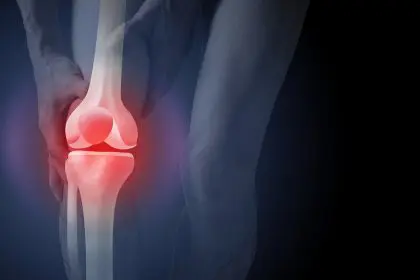When Dr. Rachel Martinez noticed her patient Lisa Thompson’s sudden intense cravings for fried chicken and chocolate in early 2024, she recognized a pattern she’d seen before. “These weren’t just simple cravings,” Dr. Martinez tells PEOPLE. “They were her body’s way of signaling deeper health issues that needed attention.”
Beyond simple indulgence
Recent medical research reveals that food cravings often serve as early warning signals for various health conditions. Dr. James Chen, endocrinologist at Metropolitan Medical Center, explains how these seemingly innocent desires might indicate complex metabolic changes within the body.
The science of sweet desires
Medical professionals have uncovered surprising connections between intense sugar cravings and hormonal imbalances. Recent studies show that persistent sweet cravings might indicate underlying insulin resistance, cortisol irregularities, or even thyroid dysfunction.
The fried food phenomenon
Research from leading medical institutions indicates that intense cravings for fried foods might signal essential fatty acid deficiencies or imbalances in gut bacteria. These findings have transformed how medical professionals interpret and address such cravings.
The inflammation connection
Medical researchers have identified strong correlations between fried food cravings and systemic inflammation. This discovery helps explain why some individuals experience persistent desires for certain foods during inflammatory conditions.
Hormonal influences
New medical studies highlight how hormonal fluctuations affect food preferences. Researchers have found that changes in estrogen, testosterone, and thyroid hormones can dramatically influence cravings for specific types of foods.
The stress factor
Recent neurological research reveals how chronic stress alters brain chemistry, potentially triggering intense food cravings. Medical professionals now recognize these cravings as potential indicators of elevated cortisol levels.
Sleep’s surprising role
Medical studies demonstrate unexpected connections between sleep quality and food cravings. Research indicates that poor sleep patterns can increase cravings for both fried and sweet foods by affecting hunger hormones.
The gut-brain axis
Emerging research emphasizes the crucial role of gut health in food cravings. Medical professionals now understand how bacterial imbalances in the digestive system might manifest as specific food desires.
Nutritional deficiencies
Recent studies suggest that intense food cravings might indicate specific nutritional deficiencies. Medical researchers have mapped correlations between certain cravings and lacking essential nutrients.
The addiction parallel
Medical professionals have identified similarities between food cravings and addiction pathways in the brain. This research provides new insights into why some cravings prove particularly challenging to overcome.
Environmental triggers
Research reveals how environmental factors influence food cravings. Medical experts now consider various external stimuli when evaluating the root causes of persistent cravings.
The metabolic message
New studies demonstrate how metabolic irregularities manifest through specific food cravings. This understanding helps medical professionals identify potential health issues earlier.
Cultural cravings connection
Medical anthropologists have identified fascinating patterns in how cultural backgrounds influence food cravings and their health implications. “Different cultures interpret and respond to food cravings in unique ways,” notes Dr. Maria Rodriguez, leading researcher at Global Health Institute.
The exercise equation
Physical activity plays a crucial role in managing food cravings. Medical researchers have documented how different types of exercise affect craving intensity and frequency. “We’re seeing that timing matters as much as the type of exercise,” explains sports medicine specialist Dr. David Thompson.
Seasonal shifts
New research reveals how seasonal changes affect food cravings. Medical professionals have identified distinct patterns in craving types and intensities across different seasons, with implications for health monitoring and treatment approaches.
The caffeine factor
Medical studies show unexpected connections between caffeine consumption and specific food cravings. “Caffeine doesn’t just affect alertness,” notes Dr. Sarah Chen. “It fundamentally alters how our bodies process and crave certain foods.”
Age-related changes
Recent research indicates how food cravings evolve with age. Medical professionals have documented distinct patterns in how cravings manifest across different life stages, from adolescence through senior years.
The pregnancy puzzle
Medical researchers have uncovered new insights into pregnancy-related food cravings. “These cravings often signal specific nutritional needs,” explains obstetrics specialist Dr. Laura Martinez. Her research identifies key differences between typical cravings and those indicating potential health concerns.
Technology’s role
Advanced medical imaging has revolutionized our understanding of food cravings. New technology allows researchers to observe real-time brain responses to food stimuli, providing unprecedented insights into craving mechanisms.
Recovery patterns
Medical professionals have identified typical recovery patterns as patients address underlying health issues triggering their cravings. “Understanding these patterns helps set realistic expectations,” notes Dr. Wilson.
The mindfulness method
Recent studies demonstrate the effectiveness of mindfulness practices in managing food cravings. Medical researchers have documented specific techniques that help individuals better understand and respond to their body’s signals.
Sleep solutions
Medical research continues to uncover connections between sleep quality and food cravings. “Improving sleep hygiene often leads to dramatic changes in craving patterns,” explains sleep specialist Dr. Michael Chang.
Future frontiers
Emerging medical technologies promise new approaches to understanding and addressing food cravings. From advanced diagnostic tools to personalized treatment protocols, the future holds exciting possibilities for craving management.
Individual variations
Medical professionals emphasize how personal factors influence craving patterns and their health implications. “What signals a health issue in one person might be normal for another,” notes Dr. Rodriguez.
Success strategies
Recent research has identified key factors in successful craving management. Medical professionals now recommend personalized approaches based on individual health profiles and lifestyle factors.














